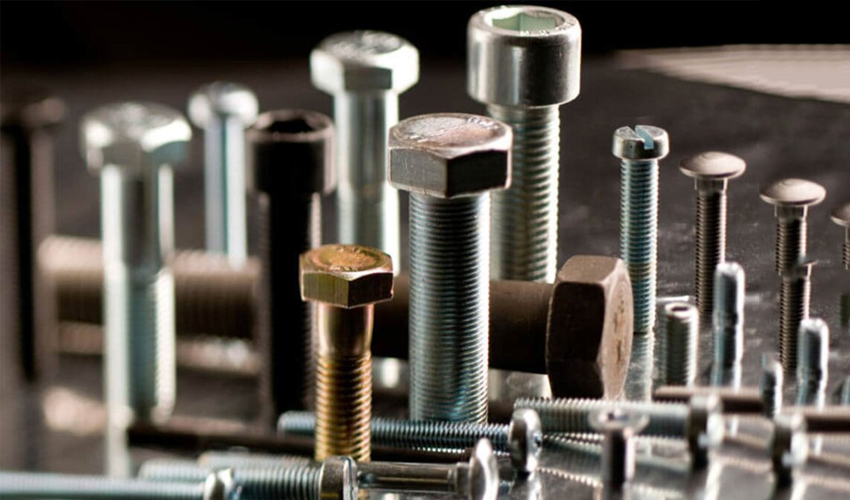Precision Fasteners 101

Precision fasteners play an integral role in the construction and manufacturing industry. They can be used in a vast array of applications, from simple staples in day-to-day applications to complex attachments in the medical aerospace manufacturing realm.
The role of precision fasteners is simple yet essential, and that is to join two or more objects together. Most of the time, they are used for creating non-permanent joints or joints that can be easily dismantled or removed without damaging the components.
Let’s delve deep into the world of precision fasteners below.
The Most Popular Type of Precision Fasteners
Precision fasteners come in different shapes, materials, and sizes, but one type stands out from the rest: stainless steel fasteners.
So, why is it the most popular type? For one, it has this characteristic that resists corrosion. Another is that it has a longer life cycle. Most importantly, it is 100% recyclable, which means it doesn't affect the environment. Now, it only makes sense why it is so popular.
But metal precision fasteners aren’t just made of one particular metal. Below are some of the most common metals used to create these fasteners:
- Steel - It is the most common metal used to create screws and other fasteners because it is durable and widely available. There are four types of steel used to manufacture fasteners, namely: alloy steel, low carbon steel, medium carbon steel, and stainless steel.
- Aluminum - It is a lightweight metal type for manufacturing custom precision fasteners. While it is not as durable as steel, it still works for binding lighter objects in different applications.
- Brass - A copper-based alloy, brass precision fasteners are the easiest to manufacture. When it comes to resistance to rust and durability, brass may perform poorly against other metals. But it does provide this aesthetic appeal that is common in different marine applications.
- Titanium - It is the most durable metal type used in screws and fasteners. Titanium precision fasteners are quite common in various heavy-duty and aerospace applications. They are also used in some medical applications like bone screws.
Two Classifications of Precision and Bolt Fasteners
What makes precision fasteners ideal for various applications is that they can bear heavy loads before reaching their breaking point. And for that, they can be classified into two main categories:
- Light-Duty - These precision fasteners are widely used in standard commercial applications, some of which you may not have even realized. Examples are tactical products, bags, straps, pet buckles, and tents.
- Heavy-Duty - These fasteners are a standard in industrial and manufacturing applications, like the tie-downs used in vehicle and aircraft cargo. They are preferred in such applications because they can sustain up to 750 pounds of load before reaching their breaking point.
Different Types of Precision Fasteners
Aside from the light- and heavy-duty classifications, precision fasteners can further be classified into two types: threaded and non-threaded.
Type #1: Threaded Precision Fasteners
Screws and bolt fasteners fall under this type. These are common fasteners that come in pre-cut threads in the shaft, allowing the components to securely grip the objects.
Screws and bolts used in sheet metal usually have threads along the shaft, whereas wood fasteners have threads about halfway up the shaft.
Now, while these threaded precision fasteners may look the same, there are actually noticeable differences. For example, screws are used to secure threaded objects, while bolts are used to connect unthreaded objects.
Type #2: Non-Threaded Precision Fasteners
As the name suggests, non-threaded metal fasteners do not require a thread to secure materials. Rather, they are driven into the objects to establish a connection. For instance, you can drive these fasteners into a material by pounding a hammer, inserting them into a pre-made hole, or using other devices to connect the fastener to more objects.
Among the most popular types of non-threaded precision fasteners are corrugated fasteners, pins, and other specialty fasteners.
- Pins - These are used to keep machine components in a precise alignment. They can also be used as a location guide for adjacent machine parts, keeping different sections in their respective positions.
- Corrugated Fasteners - These fasteners have metal strips that are connected in a wavy pattern. Their most common application is for framing projects.
- Rivets - Rivets are a permanent precision fastener. You have to install them by creating a hole into an object that is a bit bigger than the rivet's diameter. After that, you hammer the components to secure them or use a dedicated tool to complete the installation. Rivets are a smoother alternative to welding.
- Specialty Fasteners - These fasteners are common in industrial applications that involve high-strength processes. They can also be used to join leather and fabrics together.
Choose Precision Fast Tech India for Your Precision Fastener Needs!
Precision Fast Tech India is one of the most established and renowned brands of precision fasteners in the construction industry. We follow a quality-centric approach in manufacturing our products, so we can guarantee a supply of fasteners that meet the industry standards.
Should you need precision fasteners for your next big project, feel free to reach out to us! Our product specialists can make recommendations for your application as they are backed by years of construction and building experience.
